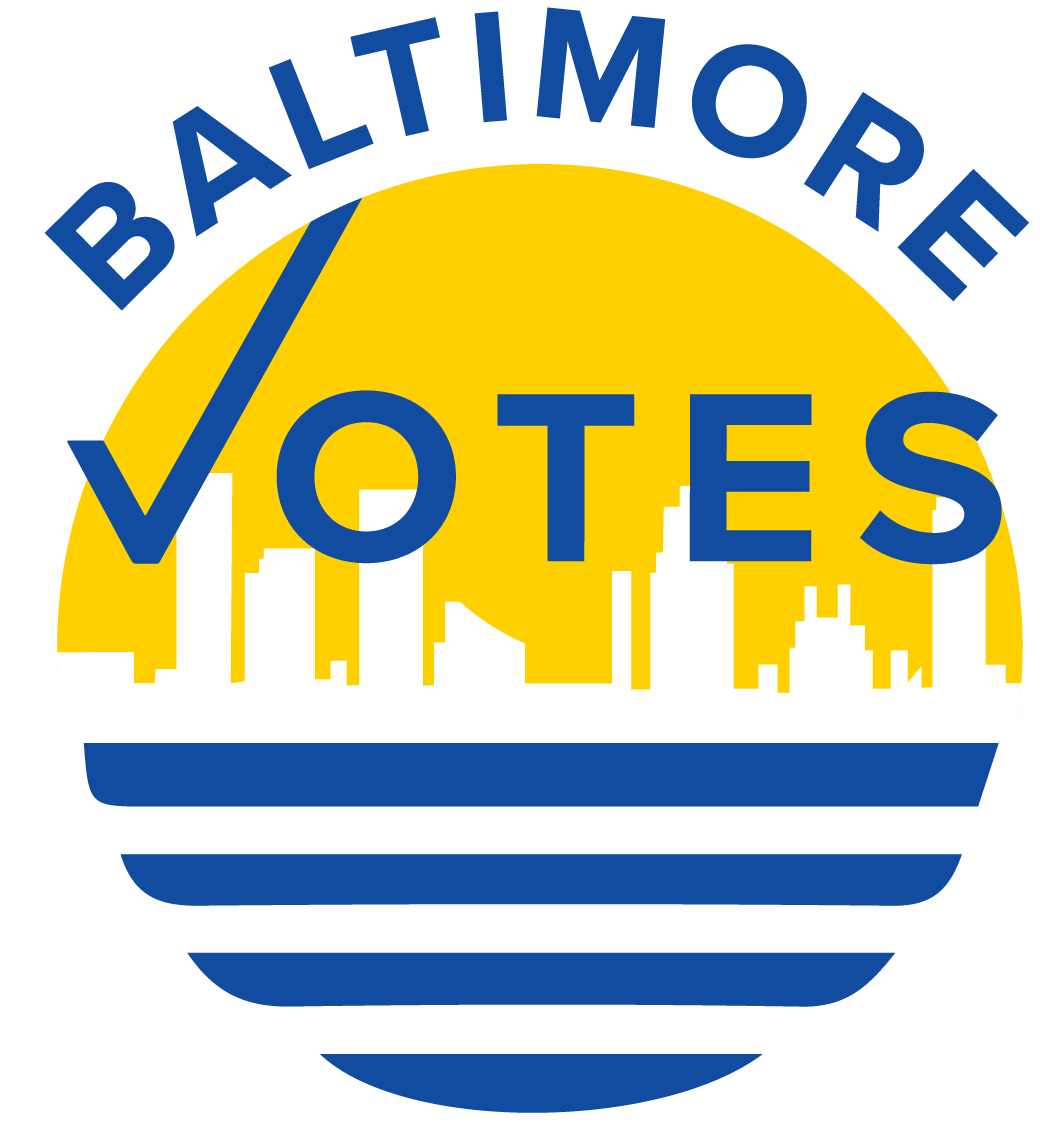The Baltimore Votes Coalition gathered community input regarding the hiring process for the new Director of the Baltimore City Board of Elections. Hearing your input, we compiled the following letter that was delivered to the members of the Board of Elections at the June 18, 2025 Board Meeting regarding the hiring process. The updated letter, including community signatures will be shared with the new Election Director upon their start.
Please click the button below to sign the letter as an individual community member or as a community organization, invested in the future of Baltimore City Elections!
May 2025
Dear Baltimore City Board of Elections:
This moment marks a pivotal turning point for Baltimore’s democracy. For the first time in over two decades, the City of Baltimore is preparing to appoint a new Elections Director. Recognizing the historic nature of this leadership transition, the non-partisan Baltimore Votes Coalition has proactively gathered extensive community input to ensure that the voice of Baltimore’s residents is front and center in this critical hiring process.
As you move forward with recruiting and selecting the next Elections Director, we respectfully urge the Board to consider the insights and recommendations outlined in this letter. These perspectives, collected from our Coalition Members, Board of Advisors, and a wide range of stakeholders, reflect a collective vision for transformative leadership—one that will restore trust, enhance accessibility, and drive innovation within Baltimore’s Board of Elections.
The feedback outlines six essential priorities and competencies that Baltimoreans believe must define the next Elections Director:
1. Visionary and Strategic Leadership
The next Director must bring bold, forward-thinking strategies to modernize election operations and advocate for system-wide improvements—such as expanded voter education, greater use of vote centers, and stronger partnerships across government and civil society. They should actively learn from successful models in other jurisdictions and lead with a clear, future-focused vision.
2. Integrity and Accountability
Trust in elections starts with leadership. Stakeholders seek a leader who is honest, ethical, and transparent—someone who takes responsibility, mitigates human error, and builds public trust through clear communication and reliable processes. Not just when things go smoothly, but especially when they don’t.
3. Operational and Logistical Excellence
Operational strength is essential. The next Director should be a skilled systems thinker—able to streamline processes, improve responsiveness on and before election day, and lead strategic poll worker recruitment and training. Data-informed decision-making and a strategic approach to planning are key.
4. Inclusive Community Engagement
A voter-centric mindset is critical. The director must prioritize meaningful engagement with all Baltimore communities, particularly those historically underrepresented. Building trust, ensuring access, and enhancing public understanding of the electoral process are central to this role.
5. Technology and Modernization
The director should champion the use of technology to improve election operations—such as implementing online election judge scheduling—and stay connected to national best practices and innovations through peer learning and partnerships.
6. Support for Election Workforce
Elections run on people. The Director must invest in the recruitment, training, and well-being of election judges and staff. This includes fair compensation, robust training, and a culture that respects the contributions of the election workforce.
Additionally, respondents provided input to support the Board of Elections to address outstanding concerns with current operations and feedback on how the community desires to be engaged in the electoral process. These concerns and suggestions should be central to the leadership of the new Election Director.
Concerns with the Board of Elections:
Many respondents highlighted significant challenges with Baltimore’s election judge application, training, and Election Day operations. Common concerns included:
Poor communication and long response times
A lack of user-friendly systems—particularly for those interested in becoming election judges
Election Judge training sessions are often seen as mediocre or inaccessible, with inconvenient locations and no online options
Many voters and election judges reported chaotic polling sites, undertrained or unqualified poll workers, and inconsistent leadership by Chief Judges, sometimes leading to confusion, bias, or misinformation
Concerns were also raised about the need for centralized training facilities, better tracking of voter registration efforts, and greater community trust. Suggestions included adopting best practices from leading jurisdictions nationwide, increasing pay for poll workers, and transitioning to a more flexible voting center model.
Overall, there is a clear call for more professionalism, accountability, and modernization across all aspects of Baltimore’s election operations.
Engaging Citizens in the Work:
Respondents emphasized the need for the Baltimore City Board of Elections to modernize and adopt a more voter-centric, inclusive, and accessible approach. Key suggestions included:
Overhauling the recruitment, application, and training processes for election judges—especially to engage youth and offer online training options
Developing a modern, user-friendly website
Improving responsiveness to sign-ups and inquiries
Strengthening community outreach by having a presence at public events and partnering with trusted local organizations, media, and other government agencies (including public transit)
Making voting easier by promoting mail-in ballots and early voting, and helping with transportation
Expanding voter education initiatives like voter guides and multilingual materials
Advocating for Election Day to be recognized as a city holiday
Above all, transparency, responsiveness, inclusivity, and direct community engagement were identified as vital to restoring trust and increasing participation.
Mr. Barnes, we ask that the community have a voice in this process and request a meeting to be held to discuss this feedback, gathered from more than three dozen community leaders, representing various civic engagement institutions across the city.
Sincerely,
The Baltimore Votes Coalition
(community organizations and individual names to be added for presentation)
